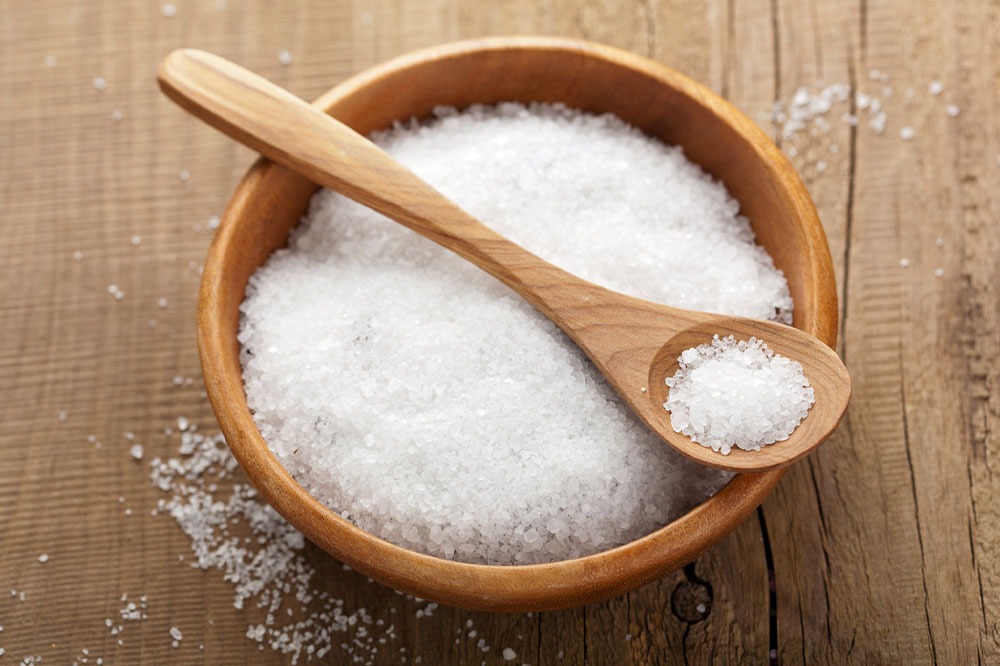
Epsom salt – Usage, benefits, and side effects
Epsom salt, magnesium sulfate, is a crystalline solid and water-soluble product. This chemical compound is made of sulfur, oxygen, and magnesium. Even though it is similar to table salt in appearance, Epsom salt is significantly different in production and usage. People often use it in the bath, which is why it is also known as ‘bath salt.’ The salt tastes bitter but has many essential benefits, from treating muscle pain to constipation.
The use of Epsom salt
There are different usages of Epsom salt in daily life. Some of the salt usages are as follows:
Bath
One of the most frequent uses of this salt is as a bath salt. Take 2 cups of the salt and mix it in the standard-sized bathtub, and soak in it for 15 to 20 minutes. One can also try holding salt under running water for fast dissolution. Epsom salt water baths can be utterly relaxing.
Beauty purpose
It has diverse uses in the skincare routines, such as:
Exfoliate the dead skin
Use this salt with cleansing cream to exfoliate the face
The salts can dislodge the blackheads on one’s face. All one has to do is mix it with iodine and water.
Mixing the Epsom salt with the conditioner can increase hair volume.
Household purpose
Epsom salts also contributes to the household in many ways, such as:
Use equal portions of liquid detergents and salt to clean the bathroom tiles
Epsom salt is also used to make DIY hand wash
It can also be used to clean the detergent build-up in the washing machine
Gardening purpose
Epsom salt is also used in gardening by many people:
Epsom salts can also contribute to fertilizing houseplants. Salt makes primary nutrients like nitrogen, phosphorus, and potassium in plants.
The salts can also be used as an insecticide on the lawn to remove pests from the garden.
Food preparation
Even though Epsom salt is significantly minimal in food processing, preparing tofu sometimes requires it.
Construction purpose
Magnesium sulfate is known for its use in specific cement preparation. This cement is aggressively useful in producing lightweight insulation panels.
Agricultural purpose
In agriculture, magnesium sulfate or Epsom salt is significantly used to increase the proportion of this mineral in the soil. Crops like potatoes, tomatoes, peppers, carrots, roses, and lemons are magnesium-hungry and require adequate mineral support. Epsom salt also prevents lead poisoning in agricultural fields and farmland.
Benefits of Epsom salts
Many health professionals claim this salt is therapeutic and can be used in many health-related conditions. Some of the benefits of Epsom salt are as follows:
Provides magnesium to the body
Magnesium is known to be one of the significant minerals in the body. However, many people don’t consume this mineral adequately. Epsom salt baths can provide a magnesium supplement to the body. So, in a way, it keeps a person healthy.
Ensures sleep and reduces stress
Magnesium is known to promote sleep and reduce stress in the body. Low magnesium levels can affect one’s sleep and help with stress management.
Help with pain and muscle cramps
One of the most notable benefits of Epsom salt baths is its pain-relieving capability. It treats sore muscles, inflammation, bronchial asthma, and migraine headaches.
Prevents artery hardening and blood clots
The salt can positively impact heart health and prevent heart-related disease and blood clots.
Helps in relieving constipation
These salts can help relieve constipation through colon cleansing, so they are a detoxifying agent. Epsom salt increases water levels in the intestines and ensures temporary relief from constipation.
Side effects of Epsom salt
The direct side effects of Epsom salts are relatively few. However, some potential side effects have been registered, such as:
Since magnesium salt has a laxative effect, one shouldn’t consume it without any reason. Otherwise, one may experience diarrhea, bloating, or an upset stomach.
If one needs to consume this salt, one must drink plenty of water, or one can experience utter digestive discomfort. Epsom salt should not be consumed without consulting the doctor first.
Sometimes, this salt can cause severe allergies, hives, difficulty breathing, and inflammation of the lips, face, tongue, and throat.
The risk factor of Epsom salts
In many cases, doctors advise people against the unnecessary use of Epsom salts. In this case, people with chronic heart and kidney conditions are at higher risk. Pregnant women and children should avoid using Epsom salt. If one consumes excess Epsom salt, a doctor must be consulted immediately. However, more research is in progress to assess its benefits and risks.
Conclusion
Epsom salt has become a household name in recent years. However, one should maintain an adequate balance between using and consuming this product. Even though all the benefits of salt are anecdotal, people feel safe using it often. It is better to dissolve the salt in water than to consume it directly.




